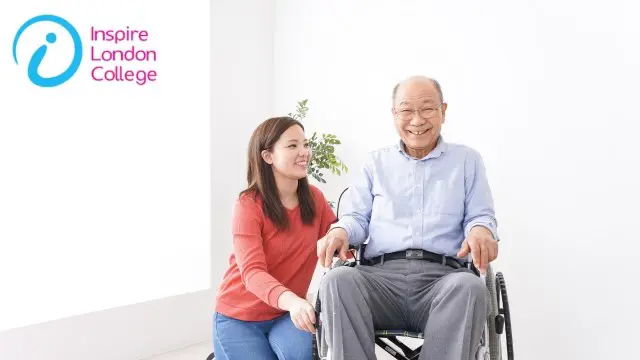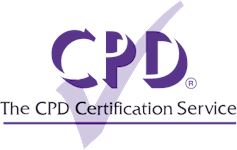
Person-Centred Care Training
Person-Centred Care by CPD | Free PDF Certificate | Video based Learning | Quiz Based Assessment
Inspire London College Ltd
Summary
- Certificate of completion - Free
- Exam(s) / assessment(s) is included in price
- Tutor is available to students
Add to basket or enquire
Overview
According to person-centred care theory, individuals should have control over their natural body processes and be provided with healthcare that reflects self-hood. Person-Centred care means getting to know the person and then tailoring their care as much as possible to meet their specific needs. Health care should be a collaboration between individuals and their healthcare providers.
Many of the adverse effects of traditional healthcare have been identified due to the lack of person-centred care, including medical errors, frustration, and even death resulting from unaffordable treatments. In addition, practitioners report difficulty trying to achieve the goals of person-centred care due to worries over their role in delivering it.
Person-centred care is now a fundamental principle outlined in legislation that plays an integral part in the standards set out for all care professionals to follow. Additionally, person-centred care has been shown to affect patient experience positively.
While the government takes a leading role in defining what is meant by person-centred care through various guidelines and frameworks, it is ultimately up to practitioners at the coal face to achieve the objectives of this care. However, some barriers do exist which prevent practitioners from being able to provide effective person-centred care.
What does Person-Centred care course offer?
The Person-Centred course will give you an understanding of person-centred approaches for care and support and how to implement a person-centred approach in an adult social care setting.
It starts by explaining what we mean by person-centred care and where this term originated. It then analyses the values represented by person-centred care and explains why care should be tailored to each service user as much as possible. Finally, it will give you an overview of care plans, daily reports, the importance of obtaining consent and much more.
Learning Outcomes of Person-Centred course:
- To summarise the values and principles of person-centred approaches and how they relate to person-centred care
- To describe how these values and regulations can be applied to plan and deliver person-centred care
- To discuss the differences between care planning and care record keeping
- To demonstrate an understanding of the legal requirements for documenting care, including obtaining consent for services
- To establish an understanding of the importance of the person-centred approach concerning safeguarding
- To summarise what you can do to ensure that you provide person-centred care when working with people receiving services.
The goal of the Person-Centred care course is an environment where everyone: patients, families, staff feel respected and cared for. This Person-Centred care course is designed to provide a range of strategies and skills which enable staff, staff teams and patients to have meaningful conversations about their care. The person-Centred care course covers the theory, application and delivery of Person-Centred care from a wide range of perspectives in a non-judgemental way.
Certificates
Certificate of completion
Digital certificate - Included
Free PDF Certificate
CPD
Course media
Resources
- Person-Centred Care Sample Certificate - download
Description
Certificate of Online Training in Person-Centred Care
OVERVIEW
What do we mean by Person Centred Care, well the term originated in the 1940s and proposed taking a holistic view of service users in care settings. This means getting to know the person and then tailoring their care as much as possible to meet their specific needs. Person centred care is now a key principle outlined in current legislation and it plays an important part in the standards that they set out which must be followed by all care professionals working in this country.
This course will give you an understanding of person centred approaches for care and support, and how to implement a person-centred approach in an adult social care setting.
It starts by explaining what we mean by person centred care and where this term originated. It then goes on to analyse the values represented by person centred care and explains why care should be as much as possible tailored to each service user. Finally it will give you an overview of care plans, daily reports, the importance of obtaining consent and much more.
COURSE OUTLINE
Module 1: Course Overview
Module 2: Definitions and Values
Module 3: Care Plans and Consent
Module 4: Daily Reports
Module 5: Example Care Plans
Module 6: Case Study
DURATION
The total duration of course video content is 45 Minutes, it does not include the time taken to read, analyse and attempt the quiz or conduct any other research.
Learner can access the Learning Platform 24/7. The time period to complete the course depends on the learner’s pace and the time dedicated for training. Though the course is self-paced, but learner will be given maximum period of 12 Months from the date of enrolment. Learner may request for extension but, ILC holds the right to close/lock the course after completion of 12 Months.
ASSESSMENT
After successful enrolment, the learner will get access to the Learning Platform, where the training material is available. The training is in the video format, and each module consist of many videos.
Each module is followed by a 3-5 Multiple Choice Questions. You will have the option to review the video content as often you like, and submit the test once you are satisfied with the answers. The minimum pass score is 80% and you will have 3 attempts to pass test for each module. But, if in any condition, you cannot pass in three attempts, you can request 3 more attempts for all modules, after which all modules will be locked.
ACCREDITATION
The courses offered by Inspire London College are approved and accredited by The CPD Certification Services and different organisations in specific field including IIRSM (International Institute of Risk and Safety Management), IATP (Independent Asbestos Training Providers), and IFE (Institution of Fire Engineers).
CERTIFICATION
There are two options for certificate of completion:
OPTION 1
After completion of Assessment, ‘Get Your Certificate’ button will become available. Learner can use this to download free certificate in PDF format.
- Certificate of Completion(PDF format) = Free of Cost
- Certificate of Completion(Hard copy) = £15
OPTION 2
You can also get CPD Accredited Certificate from Inspire London College along with transcript either in PDF format or Hard copy.
CPD Accredited Certificate of Completion along with Transcript (PDF format) = £29
CPD Accredited Certificate of Completion along with Transcript (Hard copy) £40 + Postal charges £15 = £55
Who is this course for?
Also this course, without any prior knowledge of Person-Centred Care, the learners can take this training course and in addition to this, there are no age restrictions. Thus, anyone who is passionate and ambitious about Person-Centred Care can take the course. There are no specific deadlines for admission, and you can enrol anytime on this course.
Requirements
- Good knowledge of the English Language
- Good understanding of ICT
Recommended System Requirements
- Browser: Up to date web browser
- Video: Up to date video drivers
- Memory: 1Gb+ RAM
- Download Speed: Broadband (3Mb+)
Career path
The person-centred course looks at each professional's practical, real-life experiences, exploring both theory and practice. It is designed to enable participants to develop a practical understanding of improving service delivery in their work areas like:
- Care worker
- Counsellor
- Psychologist
- Social worker
- Nurse
- Organisational development specialist.
Questions and answers
Currently there are no Q&As for this course. Be the first to ask a question.
Reviews
Currently there are no reviews for this course. Be the first to leave a review.
Legal information
This course is advertised on Reed.co.uk by the Course Provider, whose terms and conditions apply. Purchases are made directly from the Course Provider, and as such, content and materials are supplied by the Course Provider directly. Reed is acting as agent and not reseller in relation to this course. Reed's only responsibility is to facilitate your payment for the course. It is your responsibility to review and agree to the Course Provider's terms and conditions and satisfy yourself as to the suitability of the course you intend to purchase. Reed will not have any responsibility for the content of the course and/or associated materials.




